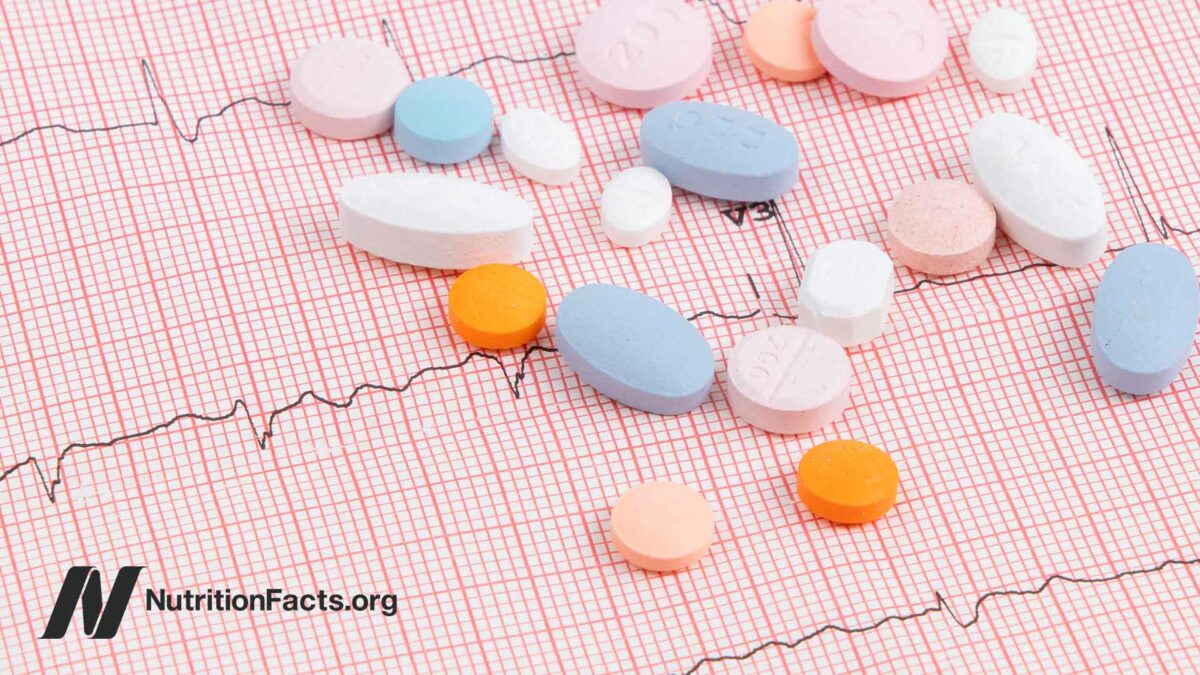
Cholesterol
Cholesterol is a vital component of our cells, which is why our body makes all that we need.
For most Americans eating a conventional diet, plaque accumulates inside the coronary arteries that feed our heart muscle. This plaque buildup, known as atherosclerosis, is the hardening of the arteries by pockets of cholesterol-rich fatty material that builds up beneath the inner linings of the blood vessels. This process seems to occur over decades, slowly bulging into the space inside the arteries, narrowing the path for blood to flow.
The restriction of blood circulation to the heart may lead to chest pain and pressure when people try to exert themselves. If the plaque ruptures, a blood clot may form within the artery. This sudden blockage of blood flow may cause a heart attack, damaging or even killing part of the heart.
A large body of evidence shows there were once enormous swaths of the world where the coronary heart disease epidemic seemed to be almost non-existent, such as rural China and sub-Saharan Africa. It’s not genetics: When people move from low- to high-risk areas, their disease rates appear to skyrocket as they adopt the diet and lifestyle habits of their new homes. The extraordinarily low rates of heart disease in rural China and Africa have been attributed to the extraordinarily low cholesterol levels among these populations. Though Chinese and African diets are very different, they are both centered on plant-derived foods, such as grains and vegetables. By eating so much fiber and so little animal fat, their total cholesterol levels averaged under 150 mg/dL, similar to people eating contemporary strictly plant-based diets.
According to William C. Roberts, editor in chief of the American Journal of Cardiology, the only critical risk factor for atherosclerotic plaque buildup is cholesterol, specifically elevated LDL cholesterol in our blood. To drastically reduce LDL cholesterol levels, it appears we need to drastically reduce our intake of trans fat, which comes from processed foods and naturally from meat and dairy; saturated fat, found mainly in animal products and junk foods; and, playing a lesser role, dietary cholesterol, found exclusively in animal-derived foods, especially eggs.
Notice the pattern? The three boosters of bad cholesterol—a leading risk factor for our number-one killer—all stem from eating processed foods and animal products. This likely explains why populations living on traditional diets revolving around whole plant foods have largely remained free from the epidemic of heart disease.
For substantiation of any statements of fact from the peer-reviewed medical literature, please see the associated videos below.
Popular Videos for Cholesterol


The Side Effects of Statins: Are They Worth It?
When statin-“intolerant” patients are challenged blindly, how many are really suffering muscle side effects?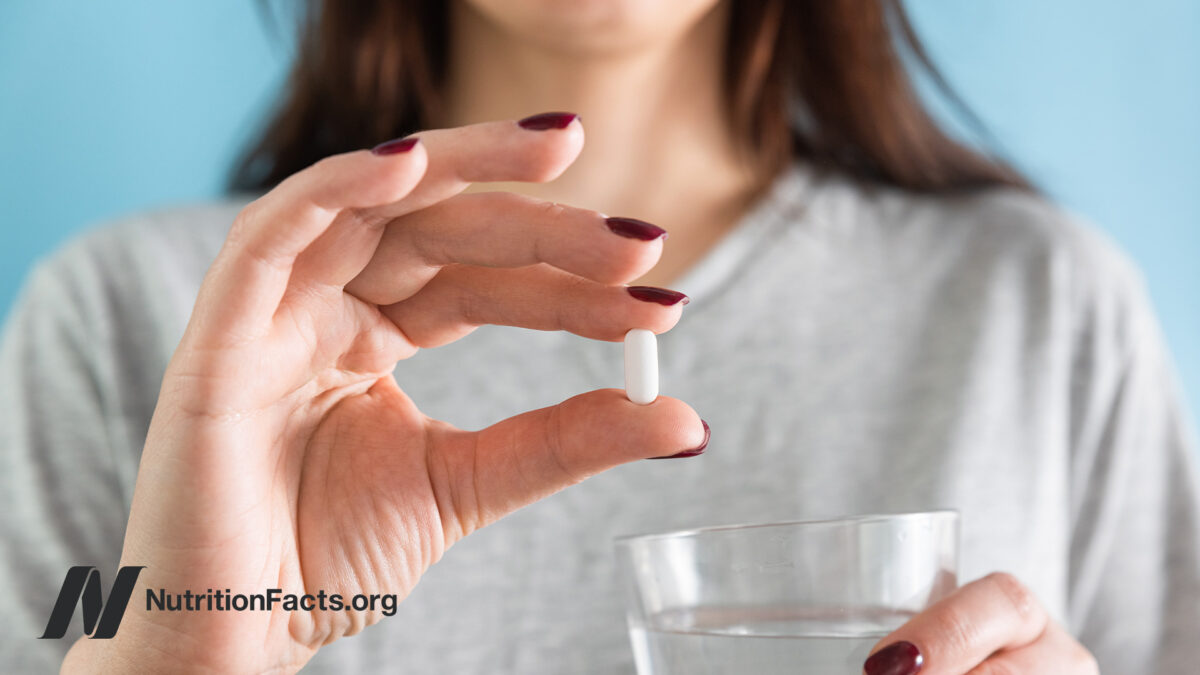
How Effective Are Statins?
How many people would die if we were told the truth about statins?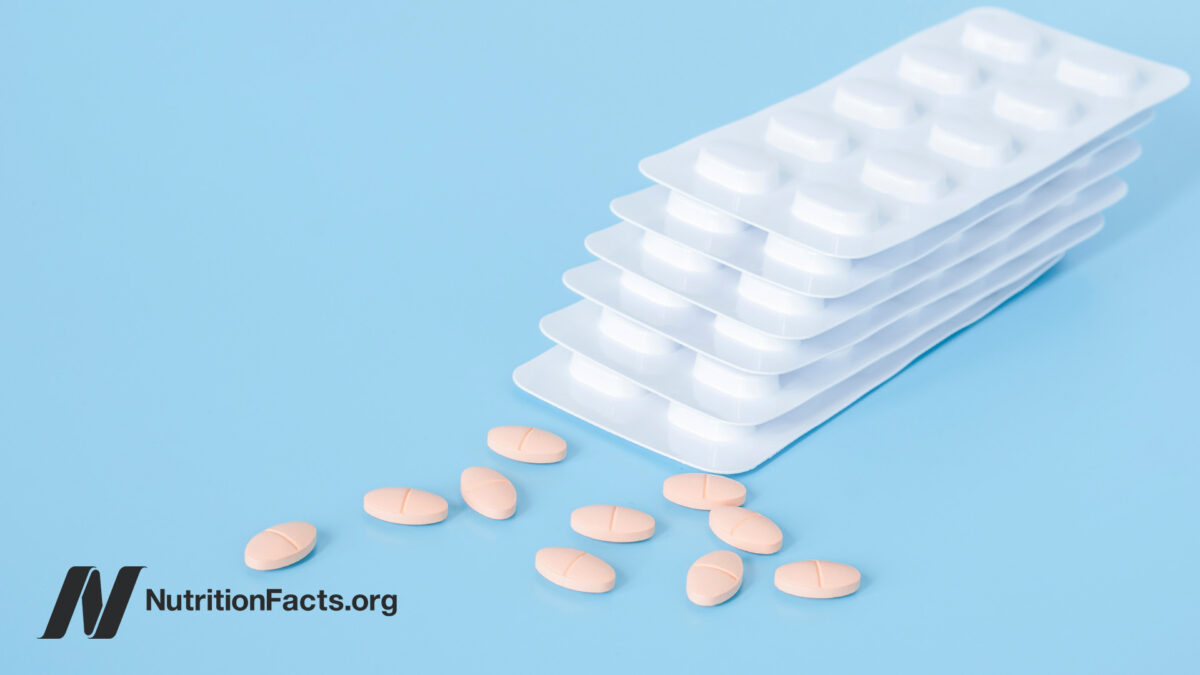
Why Isn’t Everyone on Cholesterol-Lowering Statin Drugs?
Since there is benefit to getting our LDL cholesterol as low as possible, why aren’t...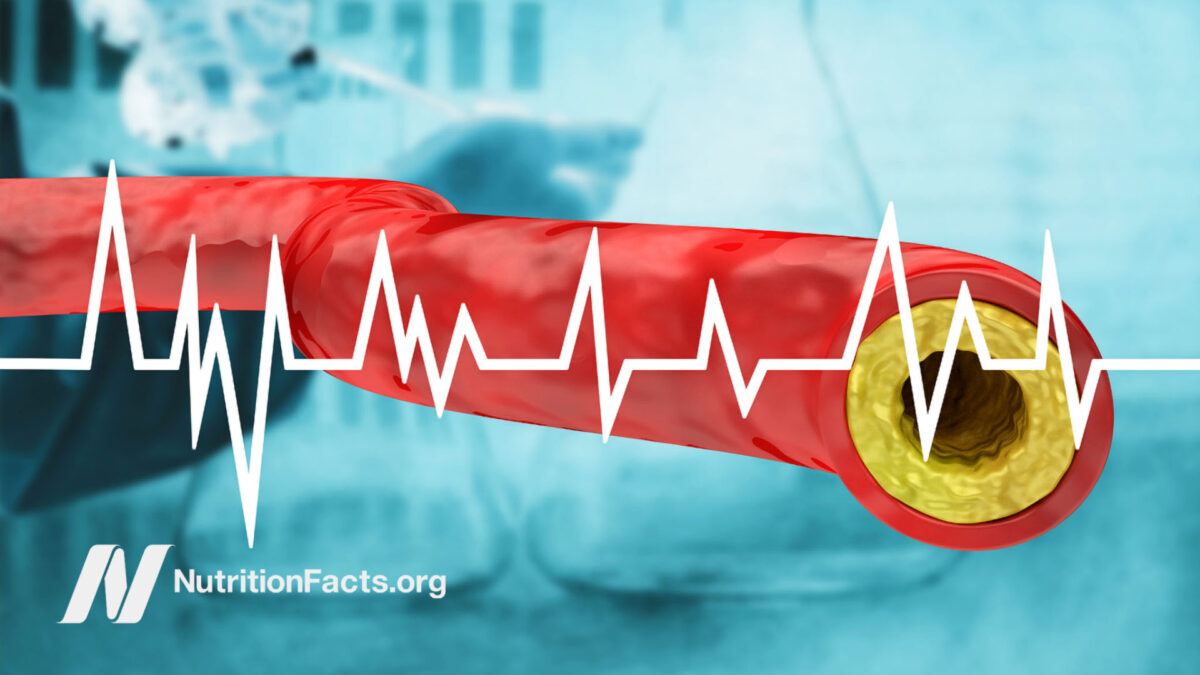
Cholesterol and Heart Disease: Why Has There Been So Much Controversy?
Is the role of cholesterol in heart disease settled beyond a reasonable doubt?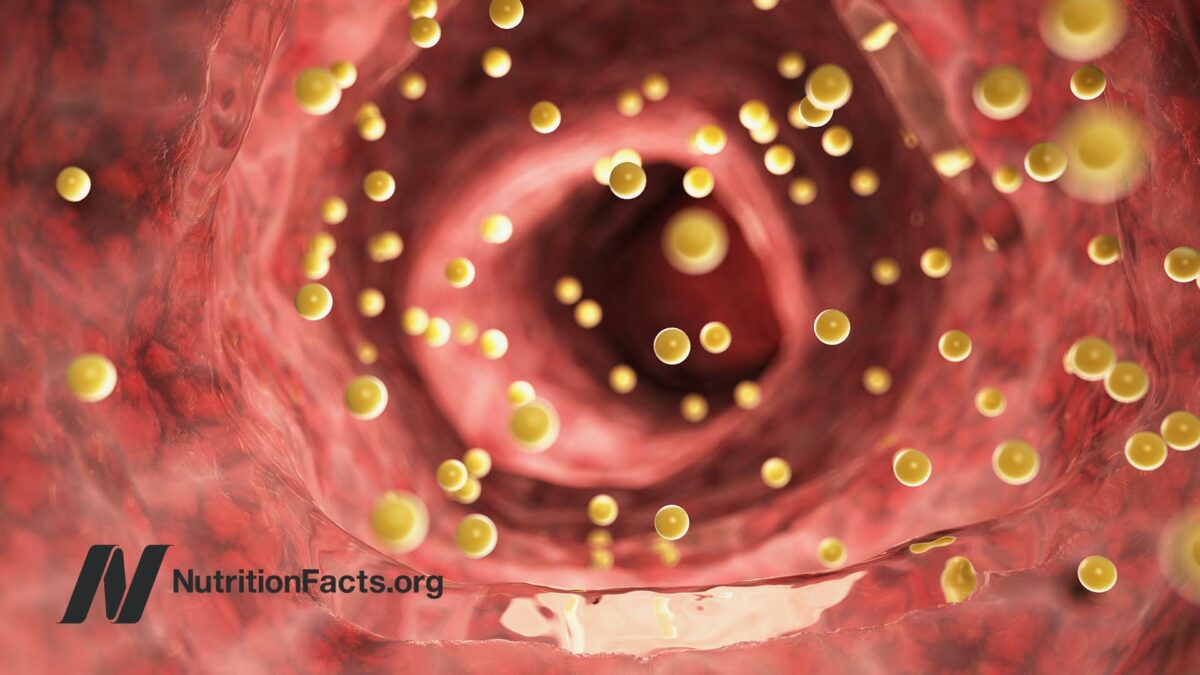
Can Cholesterol Get Too Low?
Why might healthy lifestyle choices wipe out 90 percent of our risk for having a...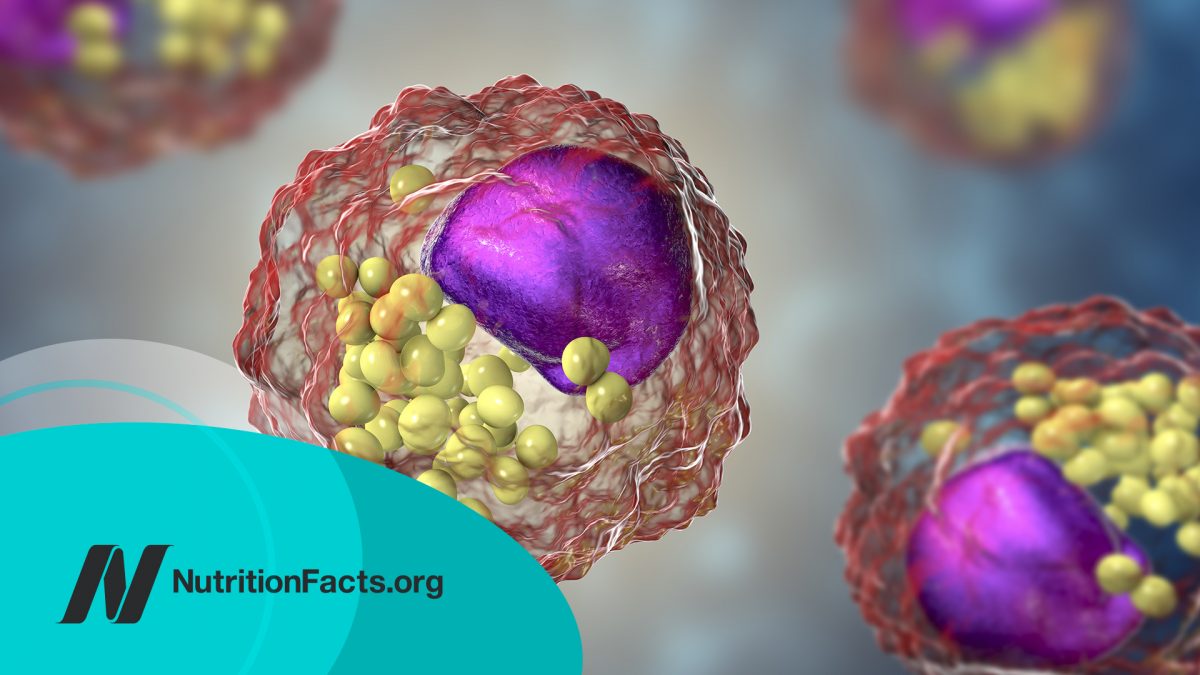
How Low Should You Go for Ideal Cholesterol Levels?
Having a so-called normal cholesterol in a society where it’s normal to drop dead of...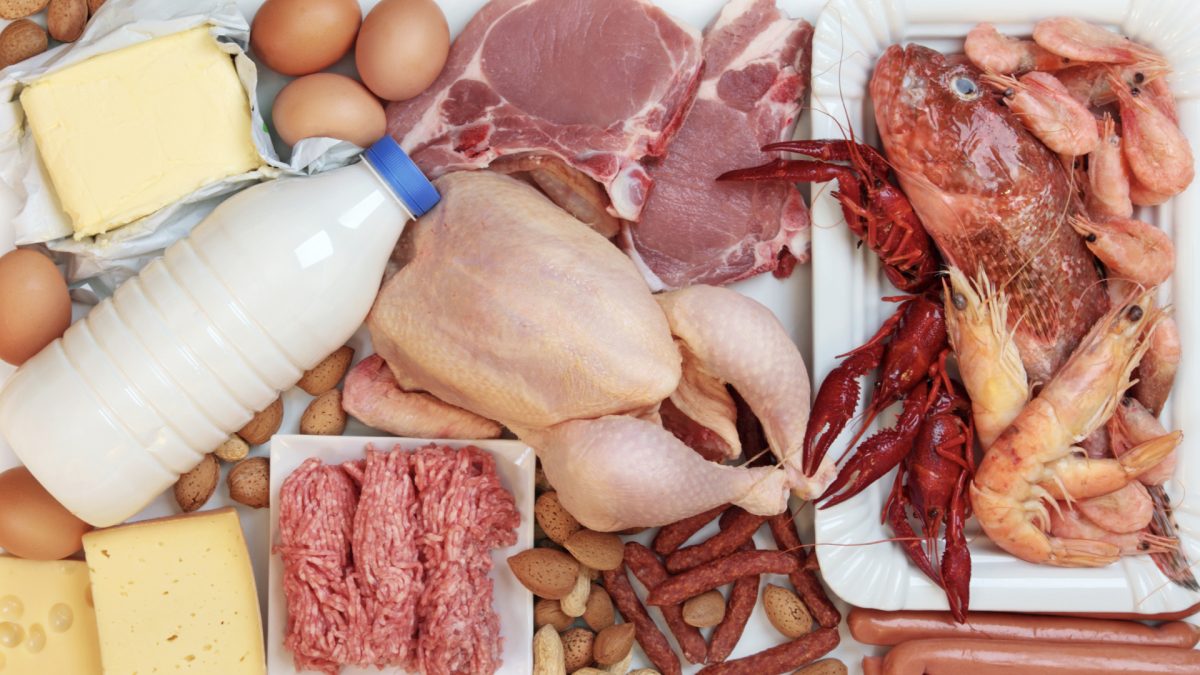
Dietary Cholesterol and Cancer
The relationship between the consumption of eggs and other cholesterol-rich foods and cancers of the...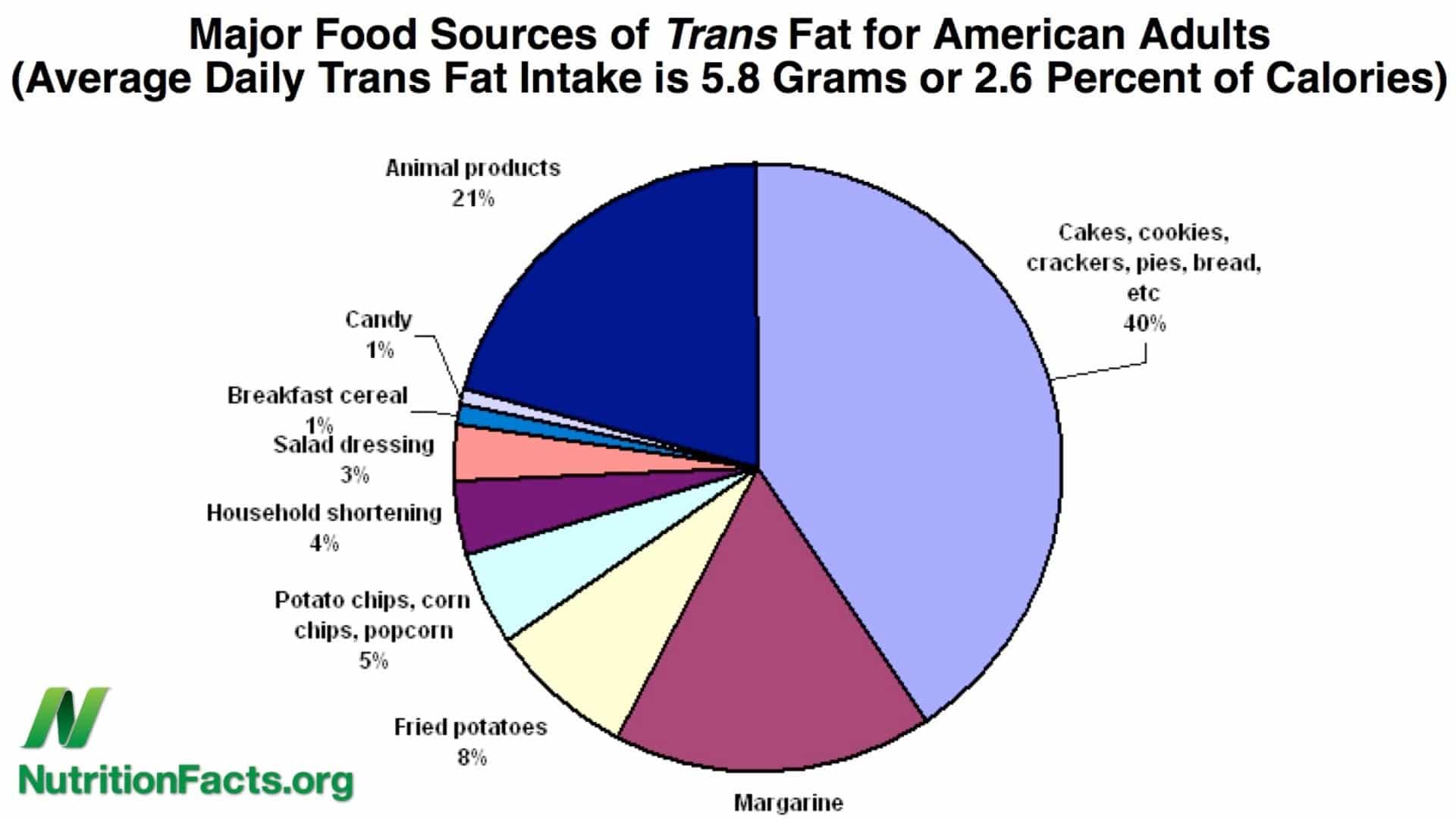
Trans Fat, Saturated Fat, & Cholesterol: Tolerable Upper Intake of Zero
The intake of trans fats, which come mostly from junk food and animal products; saturated...
Cholesterol and Alzheimer’s Disease
High-tech advances, such as PET scanning, offer new insight into the role cholesterol plays in...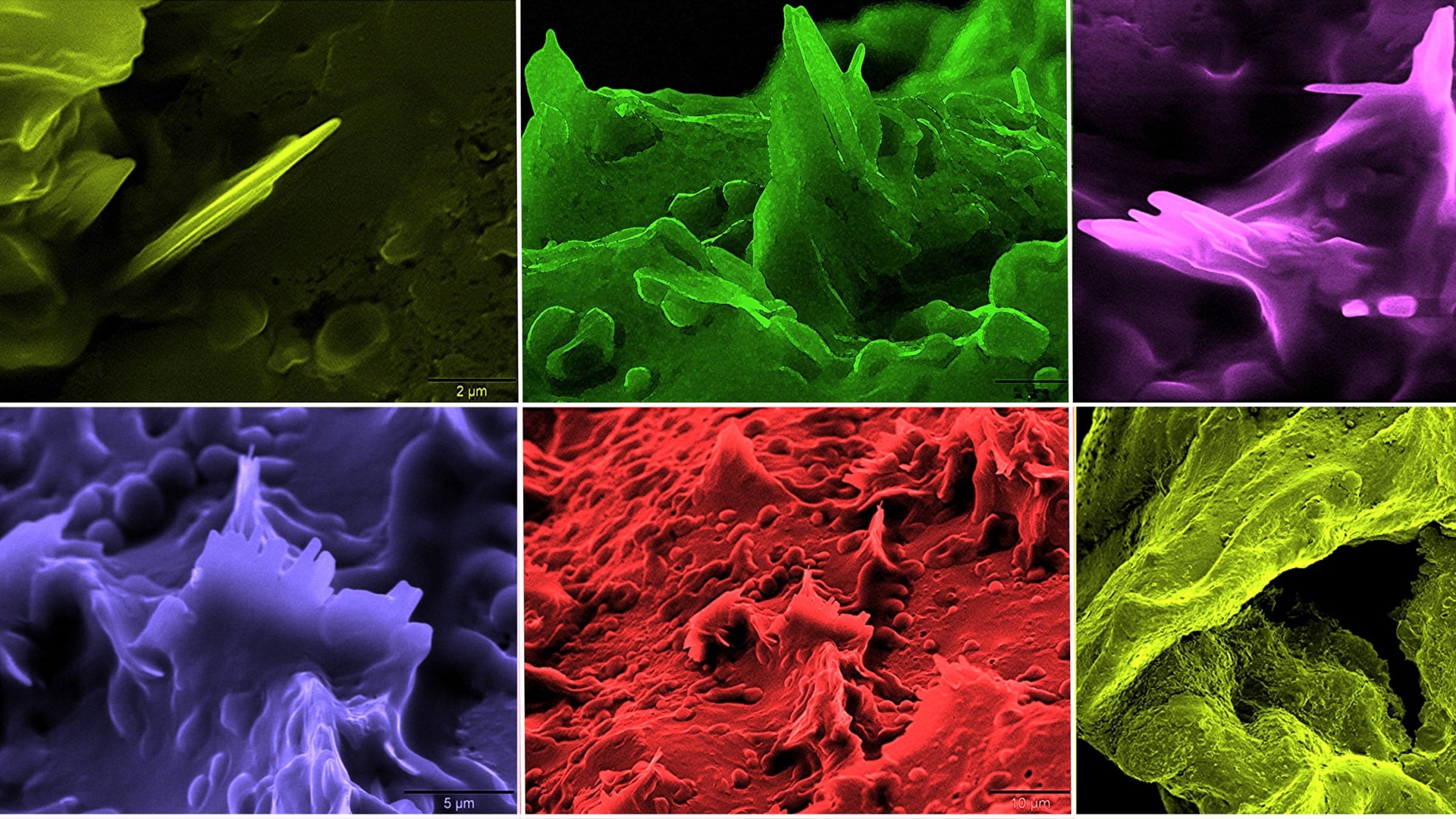
Cholesterol Crystals May Tear Through Our Artery Lining
Crystallization of cholesterol may be what causes atherosclerotic plaque rupture, the trigger for heart attacks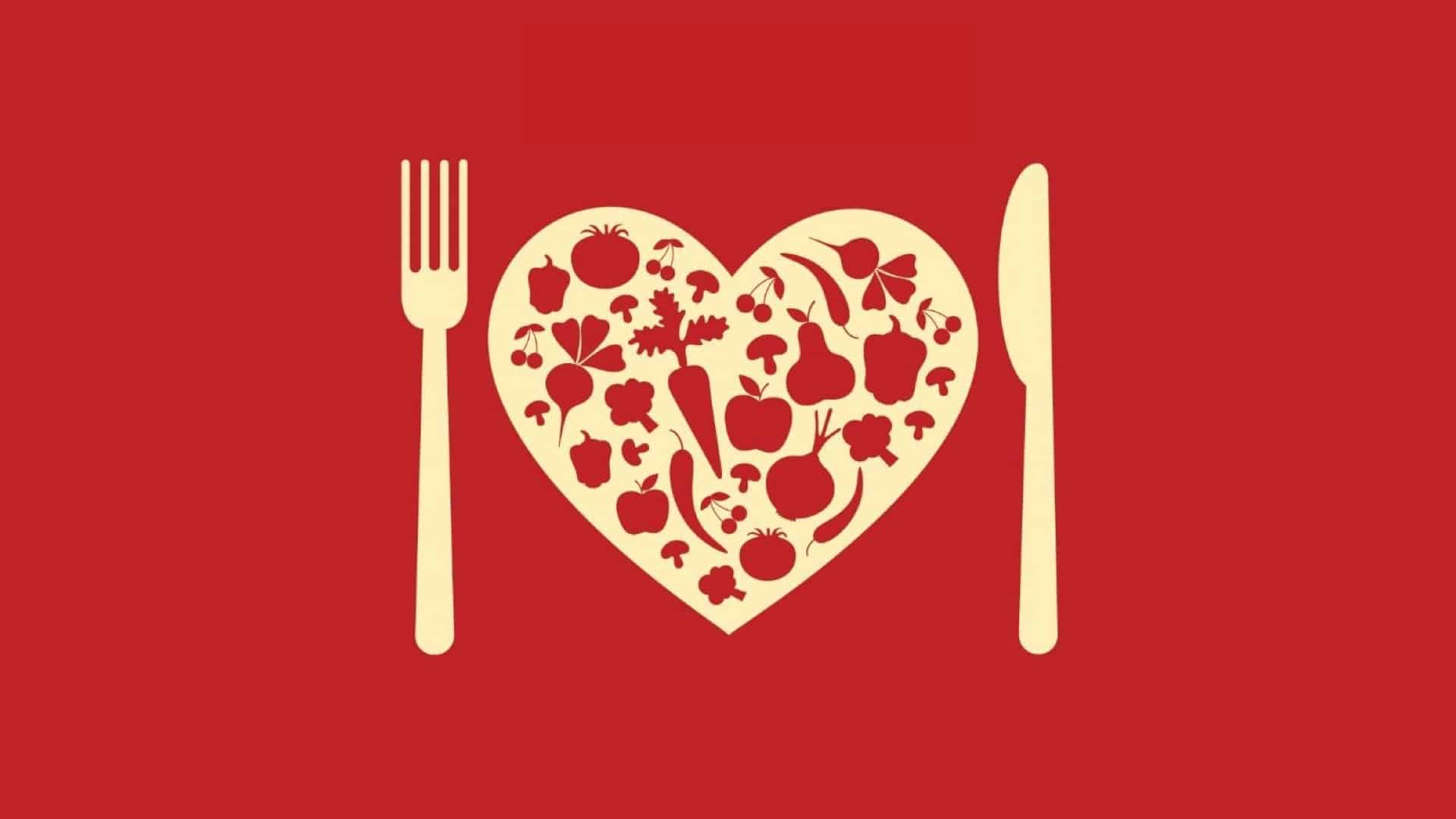
Optimal Cholesterol Level
Why don’t authorities advocate a sufficient reduction in cholesterol down to safe levels?
The Actual Benefit of Diet vs. Drugs
The medical profession oversells the benefits of drugs for chronic disease since so few patients...
Back in Circulation: Sciatica & Cholesterol
Atherosclerotic plaque clogging the arteries feeding our spine may lead to low back pain, disc...
Does Cholesterol Size Matter?
How do American Egg Board arguments hold up to scientific scrutiny, such as the concept...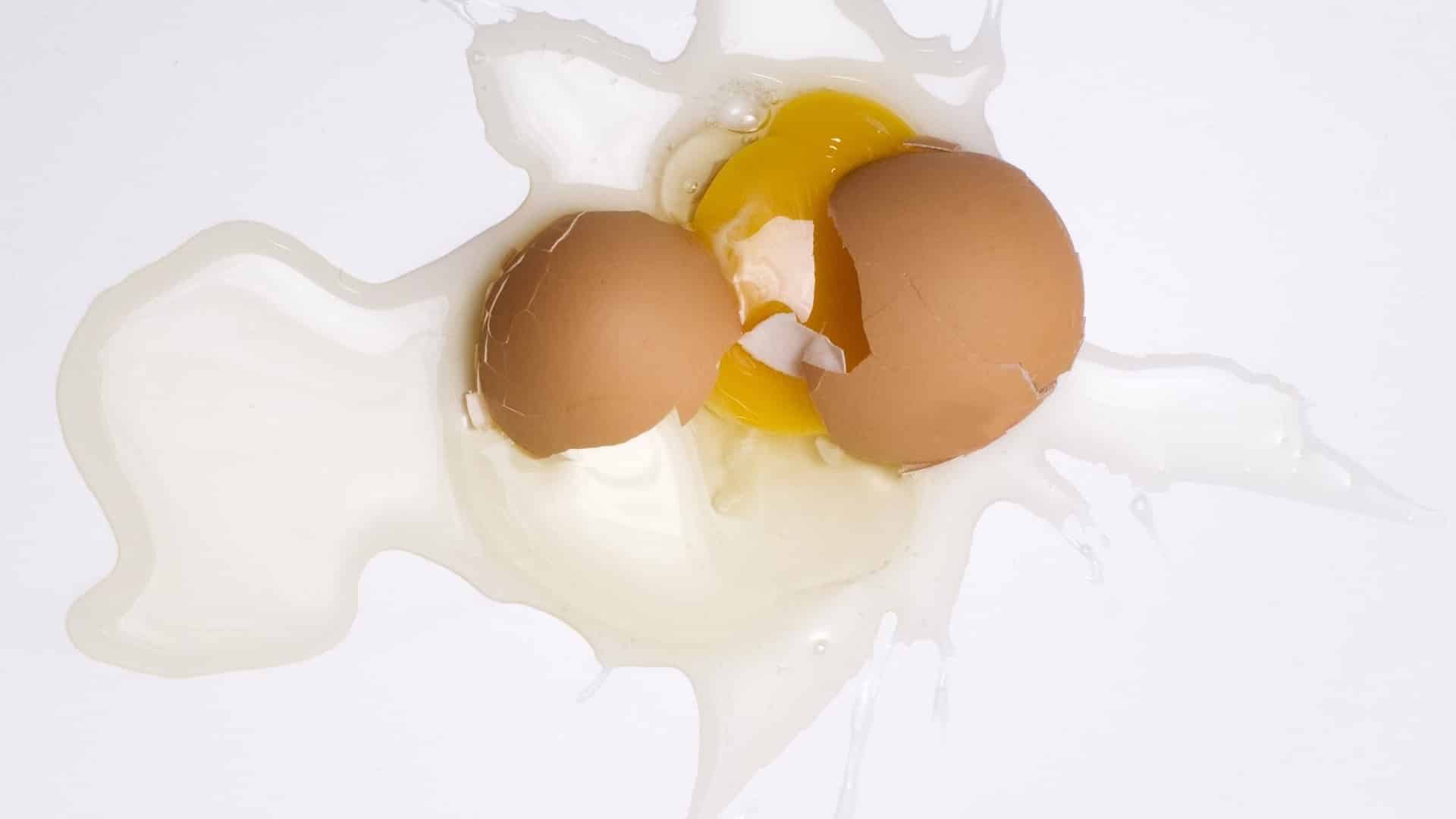
How the Egg Board Designs Misleading Studies
The cholesterol in eggs not only worsens the effects of saturated fat, but has a...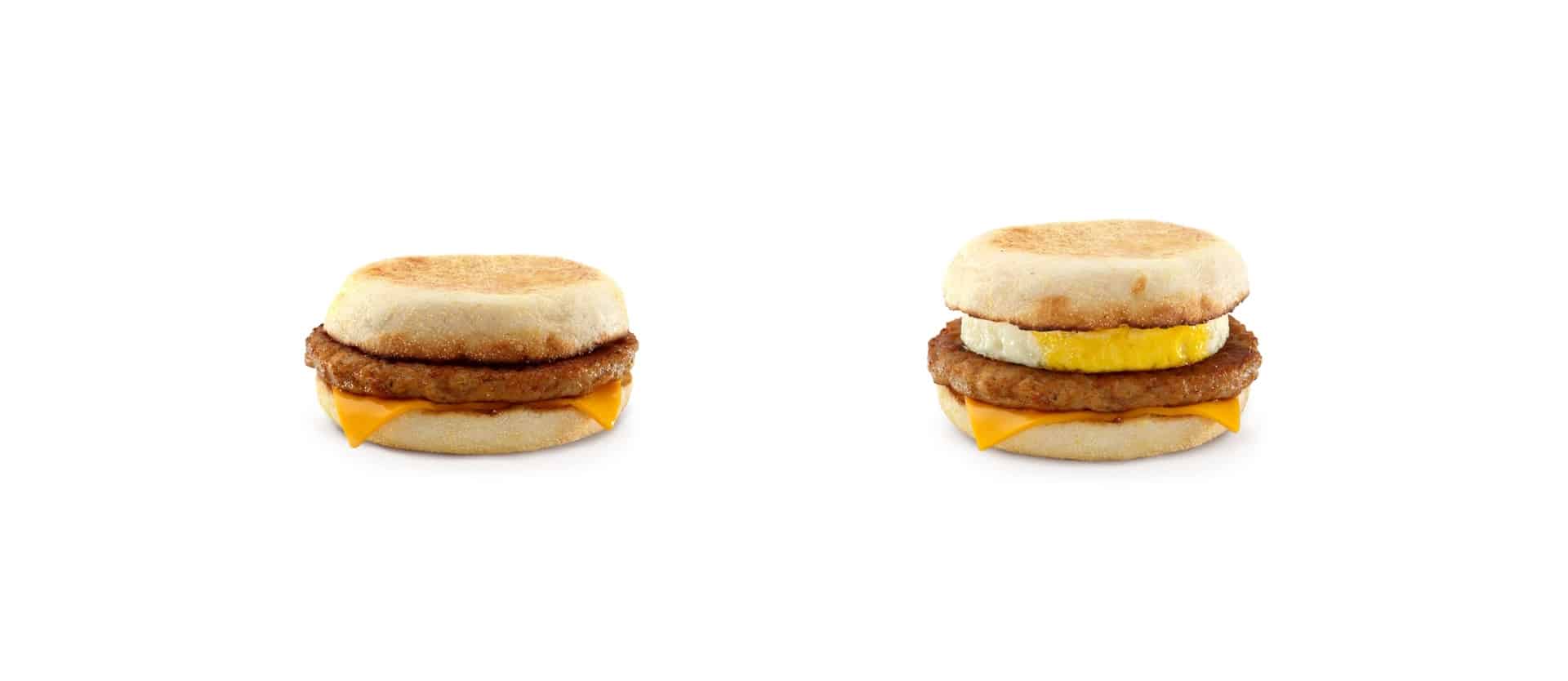
When Low-Risk Means High-Risk
Dr. Rose’s sick-population concept may explain why many nutrition studies underestimate the role of diet...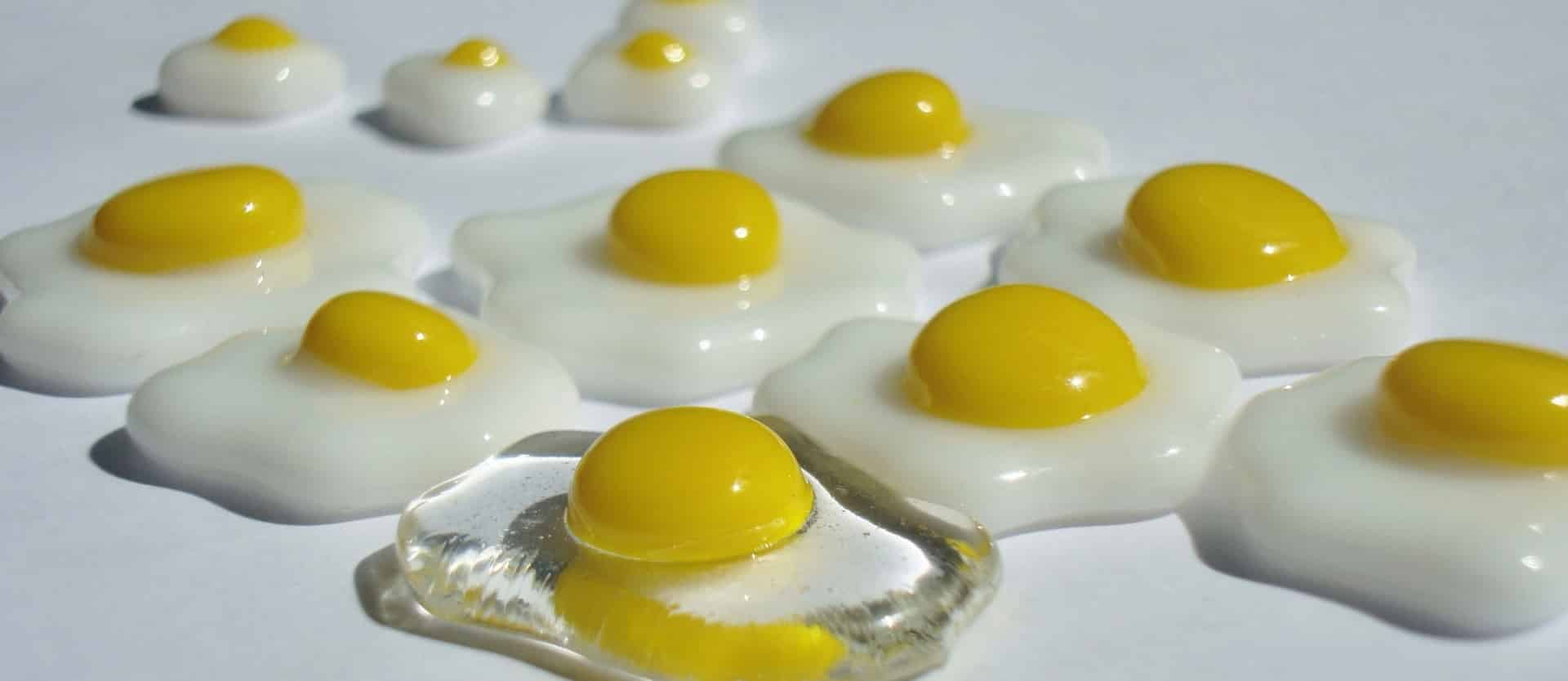
Cholesterol Feeds Breast Cancer Cells
Cholesterol appears to stimulate the growth of human breast cancer cells—which may explain why phytosterol-rich...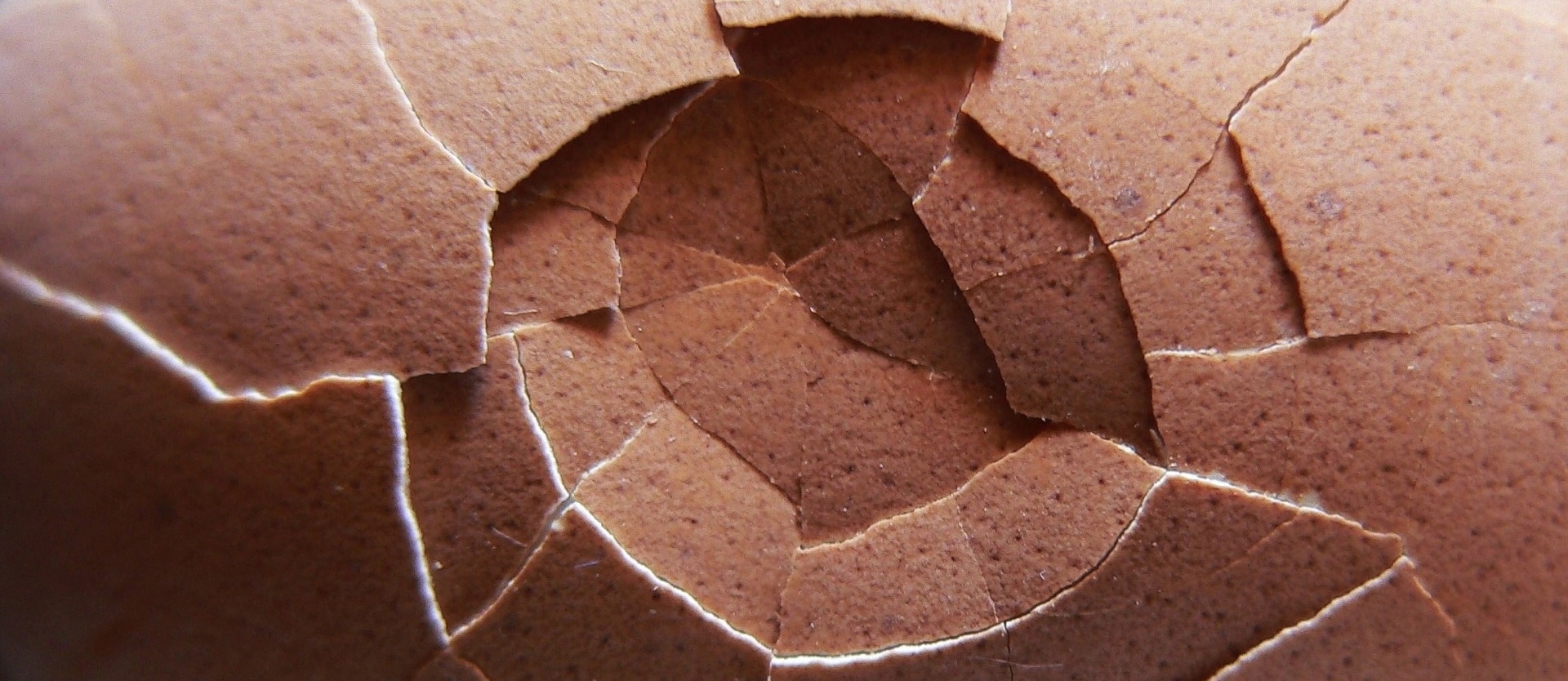
Eggs and Cholesterol: Patently False and Misleading Claims
Egg industry claims about egg safety found to be patently false, misleading, and deceptive by...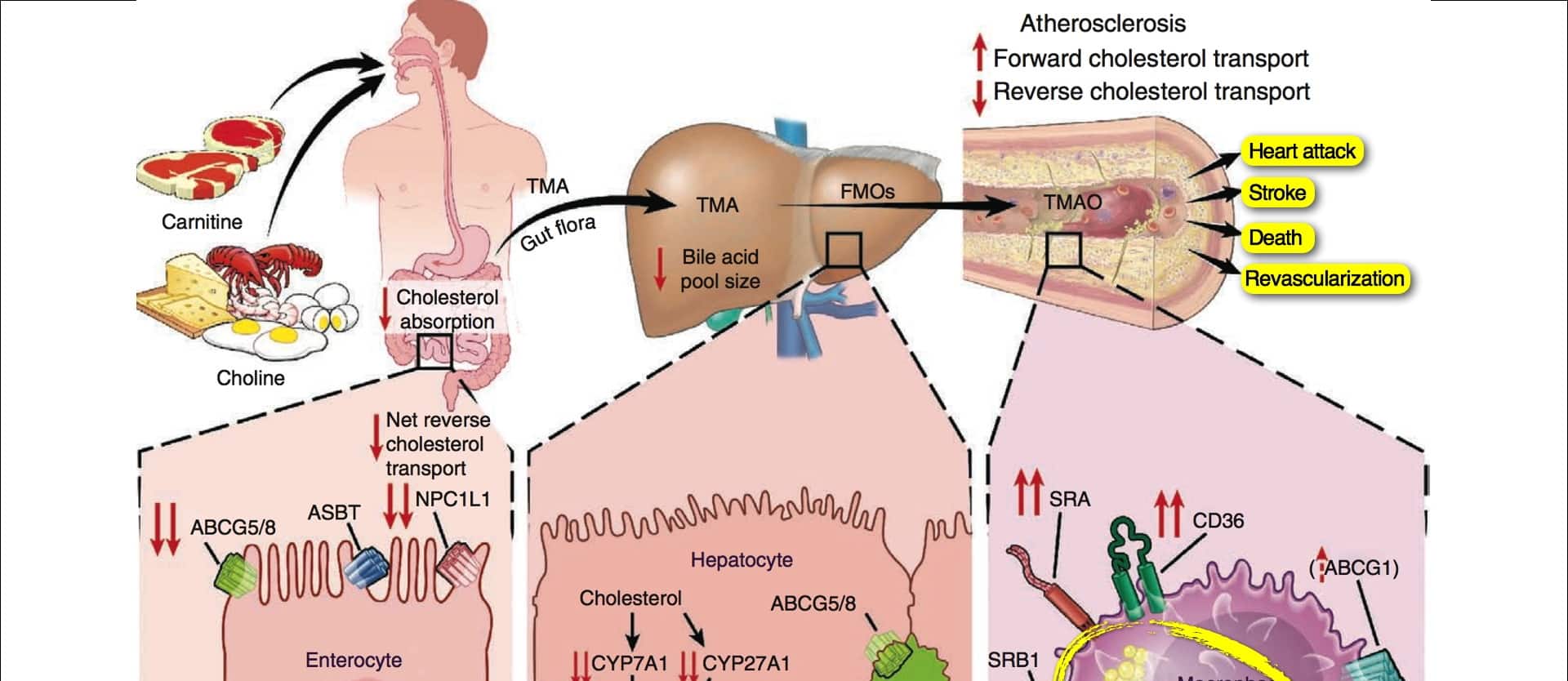
Carnitine, Choline, Cancer, & Cholesterol: The TMAO Connection
Expanding on the subject of my upcoming appearance on The Dr. Oz Show, a landmark...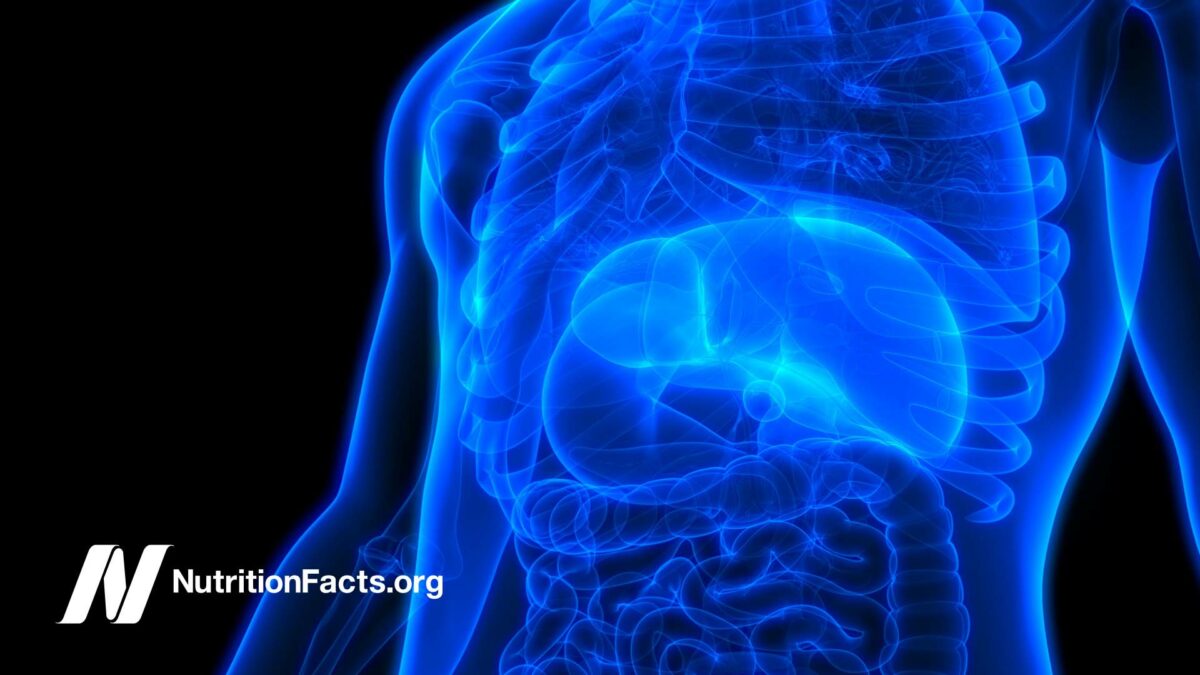
How to Prevent Non-Alcoholic Fatty Liver Disease
Avoid sugary and cholesterol-laden foods to reduce the risk of our most common cause of...All Videos for Cholesterol
-

How Not to Die Documentary
In celebration of the 10th anniversary of the publication of How Not to Die, a documentary about my life and work.
-

The Benefits of Turmeric Curcumin for Arthritis, Blood Sugar, Cholesterol, and Body Weight
Dozens of human trials reveal where turmeric delivers—and where it doesn’t.
-

The Best Diet for Optimal Thyroid Function (webinar recording)
Are there natural treatments for hypothyroidism?
-

What Are Ultra-Processed Foods?
How exactly is “ultra-processed” defined?
-

Is Shrimp Bad for Cholesterol and Heart Disease?
Might asymptomatic food sensitivities to gluten, milk, peanuts, eggs, or shrimp increase the risk of premature death for those who eat these foods?
-

Can You Reverse Type 2 Diabetes with a Whole Food, Plant-Based Diet?
Weight loss isn’t necessarily required for type 2 diabetes remission, but what is?
-

What Is the Best Statin Cholesterol-Lowering Drug?
Which is the safest and most effective statin?
-

The Side Effects of Statins: Are They Worth It?
When statin-“intolerant” patients are challenged blindly, how many are really suffering muscle side effects?
-

How Effective Are Statins?
How many people would die if we were told the truth about statins?
-

Why Isn’t Everyone on Cholesterol-Lowering Statin Drugs?
Since there is benefit to getting our LDL cholesterol as low as possible, why aren’t statins prescribed for everyone even if we start out with optimal levels?
-

Ultra-Processed Foods: Concerns, Controversies, and Exceptions
What is the role of ultra-processed plant-based products in the diet?
-

Where to Find Taurine and the Best Source
I compare the cost, convenience, and safety of various plant, animal, and supplement sources of taurine.
-

Randomized Controlled Trials of Taurine Supplementation in Humans
Cautionary tales from carnitine and arginine complicate the taurine supplementation question.
-

The Safety and Efficacy of Ketogenic, Low-Carb Diets for Diabetes Remission
A meta-analysis of low-carb diets for diabetes remission found little to no effect at 12 months, clinically important harms to quality of life, and the deal-killer––an increase in LDL cholesterol.
-

The Healthiest Way to Drink Coffee
Why do those who drink filtered coffee tend to live longer than those who drink unfiltered coffee?
-

Mercury in High Fructose Corn Syrup
There doesn’t appear to be any difference between the negative effects of high fructose corn syrup and table sugar on body fat, blood pressure, blood sugars, triglycerides, or cholesterol, but high-fructose corn syrup did appear to be more pro-inflammatory.
-

Golden vs Brown Flaxseed: Which Has More Benefits?
Which kind of flaxseed has more cancer-fighting lignans?
-

Is One Egg a Day Too Much?
Meta-analyses of studies involving more than ten million participants confirm that greater egg consumption confers a higher risk of premature death from all causes.
-

The Highest Antioxidant: Apple, Bean, Berry, Lentil, or Nut?
The best apple, bean, berry, lentil, and nut are the ones you’ll eat the most of; but if you don’t have a strong preference, which has the highest antioxidant power?
-

How to Improve Your Heart Rate Variability
A healthy heart doesn’t beat like a metronome.
-

Risks and Benefits of Nicotinamide Mononucleotide (NMN), a NAD+ Booster
NR may just be a waste of money, safe but ineffective. NMN seems similarly useless in humans, but it may not even be safe.
-

Risks and Benefits of Nicotinic Acid (NA), a NAD+ Booster
Given niacin’s decades of use as a cholesterol drug, we have a good idea of its safety profile.
-

Using Prebiotics, Intact Grains, Thylakoids, and Greens to Boost Our GLP-1 for Weight Loss
Boost our natural satiety hormone GLP-1 through out diet.
-

Comparing the Benefits and Side Effects of Ozempic (Semaglutide)
Obesity can be so devastating to our health that the downsides of any effective drug would have to be significant to outweigh its weight-loss benefits.
-

The Best Way to Boost NAD+: Supplements vs. Diet (webinar recording)
The pros and cons of all the NAD+ supplements and what are the ways to boost NAD+ naturally with diet and lifestyle?
-

Daily Dozen Diet Put to the Test for Weight Loss
What did a pilot study on How Not to Die’s Daily Dozen and How Not to Diet’s 21 Tweaks find?
-

Regulators Put the Squeeze on Juice Plus+
The Better Business Bureau and Federal Trade Commission explore the claims of Juice Plus+, a multi-level marketing company.
-

Are Fish or Fish Oil Supplements Good for the Heart?
Five massive new trials have been published recently, randomizing tens of thousands to various formulations of fish oil versus placebo.
-

The Benefits and Side Effects of Spirulina
Blue-green algae, chlorella, and spirulina are all advertised as being beneficial, but they could be harmful because they are often contaminated with algal toxins.
-

The Benefits and Dangers of Chlorella
I explain why I no longer consume chlorella.
-

Testosterone “Replacement” Therapy in Postmenopausal Women for Libido
Currently, there are more than 30 FDA-approved testosterone products for men, but none for women.
-

The Downside to Banana Smoothies for Polyphenol Absorption
An enzyme in bananas can destroy some of the phytonutrients in berries and cocoa, but there is a way to reduce the effect.
-

Does Astragalus Have Benefits for Life Extension and Fighting Cancer?
One of the most popular herbs in traditional Chinese medicine, astragalus root is marketed as a “life-prolonging” tonic.
-

The TAME Trial: Targeting Aging with Metformin
If you have diabetes, metformin can make things better, but if you don’t, the drug may make things worse.
-

Side Effects of Resveratrol Supplements
Resveratrol supplements may blunt some of the positive effects of exercise training.
-

A Testimonial from Dr. Ornish’s Alzheimer’s Progression Reversal Study
What does improving the cognition and function of Alzheimer’s patients with lifestyle medicine actually translate to in terms of human impact?
-

Can Alzheimer’s Disease Be Reversed with a Plant-Based Diet?
Dr. Dean Ornish publishes the first randomized controlled trial investigating whether a plant-based diet and lifestyle program may reverse the course of early-stage Alzheimer’s disease.
-

Does Resveratrol Make You Live Longer?
Is the red wine molecule resveratrol responsible for the “French paradox”?
-

APOE—The Single Most Important Gene for Longevity
APOE is the primary cholesterol carrier in the brain and plays a major role in packaging and transporting LDL cholesterol throughout the body.
-

How to Boost Your Endothelial Progenitor Cells (EPCs) for Heart Health
How can we improve the capacity of our blood vessels to repair themselves?
